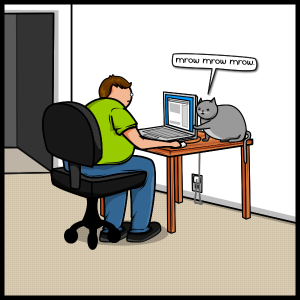Content Marketing
Lawsuits: The Content Your Brand Doesn’t Want To Think About
Traditionally, in the business world, if you wanted to prevent someone from coming forward with information or to stop potentially harmful news from spreading about you, you could file a lawsuit. But in a world where social media has made everyone is a publisher, legal actions can become stories in and of them themselves – and not in a positive way.
From Julian Assange to Edward Snowden, information leaks and whistleblowers are front-and-center in the news, and undoubtedly brands — particularly big, complicated ones with lots of employees — are wondering what will happen if the time comes for them to deal with the same thing. If they need to take action against a leaker, how will it affect their reputation, and in turn, their brand’s story? How will they undergo image repair?
A brand’s narrative is what it tells to the world, but that same brand’s story is the broader entity — the entire conversation around that brand — which means negative information is part of the story, and so is the legal paperwork associated with it on both sides.
If a lawsuit is initiated or being defended, that means legal content is being produced. Traditionally, this has had little to do with any other content-producing departments within a business organization. But consumers in an age of mass digital information availability, not to mention media outlets, will consider it all to be part of the same brand story. That’s why the PR or marketing department’s reaction or response to company litigation needs to be more comprehensive than trying to stave off media coverage or issuing a tepid company statement. Perhaps the initiator is in the right, but filing for legal action doesn’t mean instant results and may directly conflict with the brand and its voice.
The clearest reason why lawsuits need to be interpreted as part of the brand story is that it’s now not only easy for the entire internet to discover legal content, it’s increasingly easy for responses to that legal content to be created and widely disseminated, whether they’re authored by lawyers are not.
When brands aren’t prepared, this can get ugly.
For a particularly oddball scenario, take the case of the Township of West Orange, who NJ sued someone for operating a site with a similar domain name. The defendant’s pro-bono attorney not only formally addressed the cease-and-desist but made a mockery of the intelligence behind the filing, citing “about a kajillion other U.S. Supreme Court free speech cases” in the process and pretending to believe the entire time that the original lawsuit was “legal satire.”
Building a stable brand story takes hard work, but it can be unraveled far more quickly, as in the case of FunnyJunk, who may now be forever associated with pictures of a middle-aged woman engaged in inappropriate activities with a Kodiak bear.
Then there was the over-the-top battle between a site called FunnyJunk and cartoonist Mathew Inman, best known as “The Oatmeal.” FunnyJunk filed legal notice against Inman in the amount of $20,000 in “damages.” Inman replied with a response in the form of a drawing outlining, “No, I have a better idea. I’m going to raise $20,000, take a picture of the money and mail a photo of that and a picture of your mom seducing a Kodiak bear.” Inman crowdfunded over 10 times what he’d initially said he would — he hit the $20,000 in just over an hour — and then donated half the funds to organizations dedicated to endangered animals and cancer research.
Needless to say, the whole affair has not been great for FunnyJunk’s image. Building a stable brand story takes hard work, but it can be unraveled far more quickly, as in the case of FunnyJunk, who may now be forever associated with pictures of a middle-aged woman engaged in inappropriate activities with a Kodiak bear.
Lawsuits in this day and age aren’t guaranteed to get a company what it wants, but in the meantime can flood the market with just about everything it doesn’t want thanks to our culture of fast, cheap content production and dissemination. Legal paperwork is part of a brand’s story whether it wants it to be or not.
The best strategy? Brands need to understand that the reactions to legal content are likely to be on par with reactions to any other content, except perhaps more visceral given the circumstances.
And, especially, they need to understand that a strategy of attempting to shut down critical content with more content is just likely to produce more critical content, and things are likely to spiral out of control. There might even be an offensive cartoon bear involved.
Image by Evlakhov ValeriyGet better at your job right now.
Read our monthly newsletter to master content marketing. It’s made for marketers, creators, and everyone in between.





